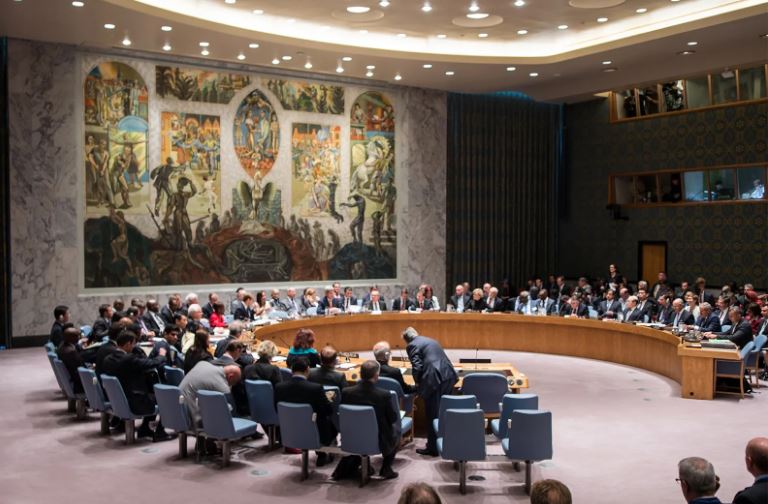——- UNSC calls for boosting Africa’s role in fighting global challenges
DM Monitoring
NEW YORK: The UN Security Council Thursday called for strengthening African countries’ role in addressing global security and development challenges, with Pakistan backing their demands, saying, “Africa is on the rise”.
The call was contained in a presidential statement adopted by the Security Council that reiterated its “support for the role of the African Union and sub-regional organizations in promoting peace and security on the continent” and its readiness to consider appropriate support, including to African Union-led peace support operations through the implementation of Council resolution 2719 (2023) on a case-by-case basis.
“Africa rightly demands rectification of the historic injustice in its representation on the Security Council and other International organizations,” Pakistani Ambassador Munir Akram told the 15-member Council during its debate on the continent’s critical role in addressing global security and development challenges, convened by Mozambique, the Council president for May.
Under the terms of the presidential statement, the Council also expressed support for progress in enhancing the role and representation of African States in global governance and decision-making processes.
Furthermore, the Council called on the international community to honour their respective commitments regarding financing for development and support the strengthening of the capabilities of African States to seize the opportunities for a proactive engagement with the wider world and advance African ownership of international peace, security and development efforts. “Africa is home to many examples of unity and solidarity in a fractured world,” said UN Secretary-General Antonio Guterres, as he opened the debate, citing the region’s focus on supporting refugees fleeing across borders, and achieving sustainable development, such as poverty and hunger eradication and renewable energy transitions. However, he pointed out, “all of these efforts require peace in Africa and beyond,” noting that “too many Africans are caught up in the hell of conflicts, or living with the relentless danger of terrorism and violent extremism in their communities.” In his remarks, Ambassador Akram, noting Africa’s fertile lands, plentiful resources and industrious people, recalled its colonization, enslavement and division into “European fiefdoms”. Following its independence in 1947, he said, Pakistan actively participated in the liberation of African nations, and he noted that “many of our African brothers were enabled to travel on Pakistani passports to promote their national freedom struggles”. Stressing that “Africa is on the rise”, he urged “new” peace operations with broader and more robust mandates, adequate resources and advanced equipment. Pakistan, for its part, will contribute actively to these objectives, including as a Council member if it is elected on 6 June, Ambassador Akram said. “Eons ago, the South Asian subcontinent was sundered from Africa by a colossal tectonic event,” he added; yet, Pakistan now works to embrace African States through trade, investment and security cooperation under its “Engage Africa” policy. As connectivity grows, he observed, Pakistan will bridge Asia and Africa to bring them closer together — “a befitting reversion to our pre-historic geography”.



